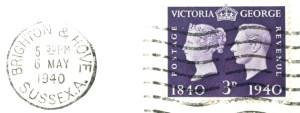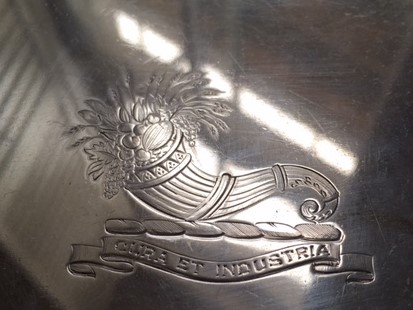I am not a techie in any sense but am certainly not one of those 65-74 year olds who, according to a survey in today’s paper, have never used the internet; that much is obvious. However, when it comes to a technological problem, I only have a few responses in my kit bag.
The first is a general one, of which most of my readers will be familiar. It goes something like: “Aaggggggghhhhhhhh!” and maybe coloured a little by the addition of ‘f**k’. And when reading this you need to be reminded that this is effortlessly produced far back in the throat and announced into the open void at full volume. Not that technology normally responds to this; after a few minutes you try and rationalise it ……… and find a solution.
The other morning my iPad refused to stay ‘on’. That is, I switched it on and waited for the ‘screen saver’ to appear. As soon as it does, you can normally simply swipe the screen and enter your passcode. Nothing; wouldn’t swipe, simply went out. Blank! No problem, the old ‘soft reset’! Nothing! Maybe shaking it would help? Leave it 3 minutes ….. try again! Nothing! Throw it through the window?
“Why not try and Google it?”
The sage says do the soft reset for 45 seconds. Sure enough, back to normal. Why? No idea? Technology huh!
I am collating all my PCs on my Toshiba laptop, prior to possible publication of the first one hundred. I had about 30 minutes spare on Friday morning so I thought I could add to my collation. Turn on my laptop. Up comes the reassuring stuff then the “Don’t Turn off your computer, Windows Updating ….. 0%” You know these updates are necessary and didn’t need last weekend’s cyber hack to remind you, although they do have a very irritating habit of starting just when you want to do something for 5 minutes, now! So you watch the little figure progress …. 5% … 10% … 15% … 20% …21% …22% … 23% ….. the wretched worm endlessly circling like some demented hampster on its wheel. I went off for a pee, came back and it was still at 23%, the ‘don’t turn off, updating’ continuing to taunt me. And it stuck at 23%. So I unplugged it, knowing I could not turn it off any other way; let the battery run down. Sure enough, after a while, the 23% faded and the screen went blank. Leave for 5 minutes (Not sure why? Cool down? Seemed the right think to do but not being a techie ……! Oh! And I prayed as well. Even smiled at it, as in ‘I love you really!’) Switched back on ……. and after a few flashes of stuff, we got back to the ‘Windows updating …..’ ‘Aaaaggghhhhh’.
I had used a local computer company before when I had a problem and phoned them.
“Bring it in.” I had some ridiculous notion that if I took it around then and there, they would drop everything else they were working on and fix it before the evening was over. It was raining, a somewhat rare event in the South East this year, so I put my laptop and charging cables into a bag and off I went. Southern Technology is up on Blatchington Road which runs at right angles to George Street; a mere 10 minute walk.
When someone has a first name which don’t translate well across cultures, you tend to remember it, especially as it makes you laugh; that that is clearly understood and made the most of by its owner is a bonus! “Hi! Fattey” I called as I opened the shop door. Fattey is a lovely 30s something Iranian with a good sense of humour; he would need it I hear you think! He manages the business with Hassan, bearded and more hipster by appearance. The shop has a counter, situated as near to the door as possible so that there is maximum room for the computer peripherals (This generic word covers the chargers, storage devices, cables, bags, add-ons, plugs, boosters, dongles, software patches etc etc) that are for sale. Behind the counter are steps leading up to a sort of mezzanine floor where the repair work is carried out. You see piles of laptops, desk tops, data storage devices, soldering irons, cables and electrical sockets everywhere; in amongst these, reminders of human need, the odd coffee cup and discarded sandwich wrapper, its contents consumed long ago.
Hassan fills out the little work docket, Fattey shouts from the workshop it’s probably a software or hard disc problem, and I hand over my laptop. Hassan says they hope to be able to recover all the data and get it working well. “Is there anything really really important?” “Well. I don’t ‘game’ (Is that a way of saying I don’t play Auto Theft 6 or some such?) and I don’t use it for music or watching videos (I get a funny look from both of them, almost a ‘Well, what do you use it for?’ sort-of look) but all my digital photos are on it, and my Word files are very precious.”
I depart in the rain, praying that it is fixable and soon.
My little brain manages to produce some scribbles about once a fortnight and I was due to post my next postcard this weekend. It’s 90% written ……… but it’s stored on my laptop …… which remains in the workshop of Southern Technology. Unless I get a telephone call in the next hour, they will close for the weekend and I will be unable to post PC 97 as I had planned. So this little tale could well become PC 97 and the other one renumbered. I hope it doesn’t disappoint?
Richard 20th May 2017
PS So there you have it; no telephone call, no laptop! Fortunately I have a little Notebook.



